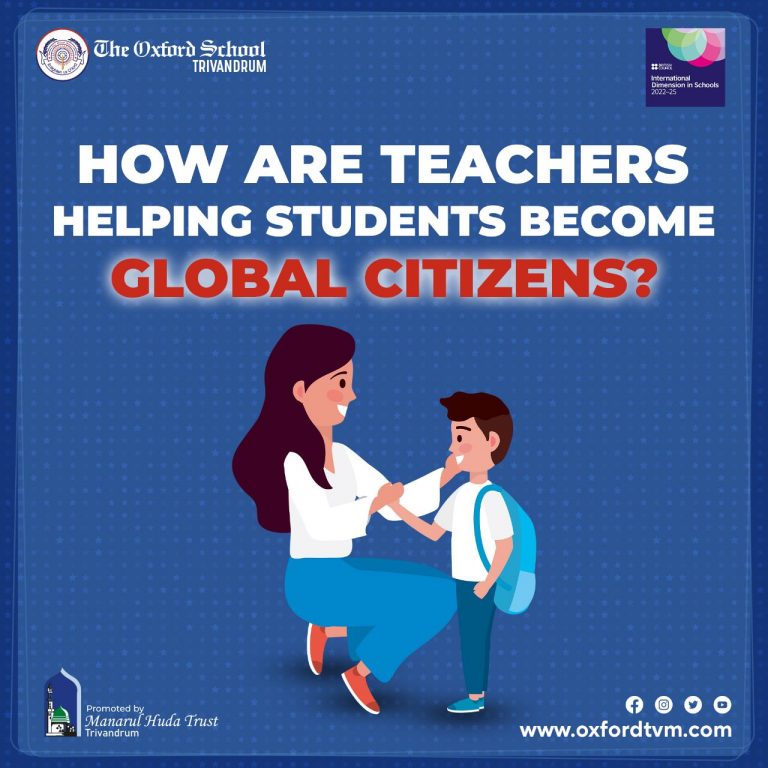As the world becomes more interconnected, the need for global citizens is more pressing than ever. Global citizens are individuals who are aware of the world around them, have a sense of empathy and concern for other cultures and societies, and are willing to take action to create positive change. At the Oxford School Trivandrum, teachers play a crucial role in helping kids become global citizens and here are some ways they are doing it:
Exposing students to diverse cultures
One of the most important ways teachers help kids become global citizens is by exposing them to diverse cultures. This is done by introducing students to literature, music and art from different countries, as well as teaching them about the history, traditions and values of different cultures. Teachers shall also invite guest speakers from different backgrounds to speak to their students, or organize field trips to cultural events and museums.
Encouraging critical thinking and reflection
Teachers can also help students become global citizens by encouraging critical thinking and reflection. This means encouraging students to think critically about the world around them, to question their assumptions and to reflect on their own values and beliefs. By doing so, students can develop a deeper understanding of different perspectives and ways of life and learn to appreciate the complexity and diversity of the world.
Fostering empathy and compassion
Another key aspect of being a global citizen is empathy and compassion for others. Teachers should foster empathy and compassion by creating a safe and inclusive classroom environment, encouraging students to share their own experiences and perspectives, and modelling empathy and compassion in their interactions with students. Teachers here, also teach social and emotional skills, such as active listening and conflict resolution, which can help students develop empathy and compassion for others.
Engaging students in service learning and community service
Service-learning and community service are powerful ways to help students become global citizens. By engaging in service-learning projects, students are able to develop a deeper understanding of the needs and challenges facing their local and global communities and learn how they can make a positive impact. Teachers help students develop their leadership skills and a sense of civic responsibility through community service projects, such as volunteering at a local food bank or organizing a fundraiser for a global charity.
Teaching digital citizenship and media literacy
In today’s digital age, being a global citizen also means being a responsible digital citizen. And so, it’s very important for teachers to help students become responsible digital citizens by teaching them about online safety and privacy, media literacy and the responsible use of technology. By doing so, students can learn how to navigate the digital world responsibly and use technology as a tool for positive change and global connection.
It’s necessary to keep in mind that teachers are essential in assisting kids in developing into global citizens. Teachers assist and prepare students to be active and responsible members of a global community by exposing them to various cultures, promoting critical thinking and reflection, fostering empathy and compassion, involving them in service learning and community service and teaching digital citizenship and media literacy. The demand for global citizens is greater than ever as the globe becomes more linked and teachers have a unique chance to influence the development of the next generation of global citizens.




